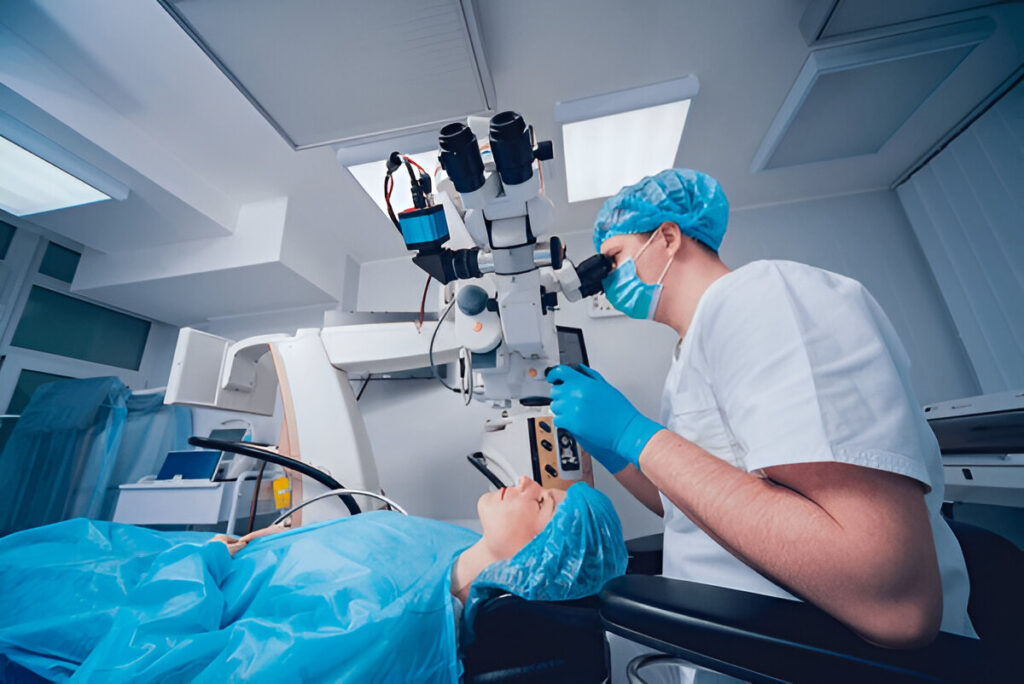Top Glaucoma Surgeon Singapore: Who are they and What do they Offer?

While many cases of glaucoma can be managed with medication or laser treatments, advanced glaucoma often requires surgery. This is where a top glaucoma surgeon in Singapore comes in.
Follow this link to learn more about their qualifications, and treatments they provide among other basics. Now, if you or a loved one is considering glaucoma surgery, the first thing you will want to understand is the type of procedure recommended and how it aligns with your specific condition.
This article explains what glaucoma surgeons are and what you can typically expect during an appointment with one. Let’s begin!
What Makes a Glaucoma Surgeon Different from Other Eye Specialists?
To begin with, a glaucoma surgeon is an ophthalmologist with advanced training in diagnosing, managing, and surgically treating glaucoma. Unlike general eye doctors, glaucoma surgeons undergo extensive subspecialty training in this area.
After completing medical school and a general ophthalmology residency, glaucoma surgeons pursue fellowship training focused on glaucoma care. This includes mastering complex surgical techniques, understanding the progression of the disease, and learning to manage complications.
It is important to note that while medications and laser therapies can control glaucoma in many patients, they may fail in advanced or aggressive cases. The expertise of glaucoma surgeons becomes valuable when these first-line treatments are insufficient to preserve vision.
Glaucoma surgeons excel in procedures that reduce intraocular pressure (IOP), a key factor in slowing vision loss. Their surgical expertise is critical for patients at risk of severe damage to the optic nerve. In Singapore, many of these specialists work in top-tier eye centers equipped with advanced technologies to ensure precision and safety in care.
What Types of Surgical Procedures Do Glaucoma Surgeons in Singapore Perform?
When needed, a top glaucoma surgeon can perform advanced surgical procedures to manage the condition. Here are the most common procedures they perform:
● Trabeculectomy
This is a traditional form of glaucoma surgery. It involves creating a small drainage channel in the eye to reduce intraocular pressure.
Excess fluid is redirected to a reservoir (bleb) created under the conjunctiva, where it is absorbed by surrounding tissues. Trabeculectomy is highly effective but requires keen post-surgical monitoring.
● Minimally Invasive Glaucoma Surgery (MIGS)
MIGS refers to a group of procedures designed to lower IOP with less trauma to the eye. These surgeries use microscopic tools and tiny incisions which allow for shorter recovery times and fewer complications.
Common MIGS techniques include iStent or Hydrus implants and trabectome. iStent or Hydrus implants are tiny devices that are implanted to improve fluid drainage. Trabectome is a specialized device that removes a portion of the eye’s natural drainage system.
● Laser Therapies
Laser treatments are often the first step before surgical intervention. Two common types include Selective Laser Trabeculoplasty (SLT) and Argon Laser Trabeculoplasty (ALT)
SLT is a quick outpatient procedure that uses low-energy laser pulses to improve drainage. ALT is similar to SLT but uses a different type of laser to achieve similar results. These procedures aim to reduce IOP and prevent further optic nerve damage to greatly slow down the progression of glaucoma.
Is Surgery the Only Treatment for Glaucoma?
Being diagnosed with glaucoma or told you’re at risk isn’t some news that is easy to take, especially considering that there is no cure for glaucoma. Because of how difficult it is to manage, many people frequently ask; is surgery the only treatment for glaucoma?
The answer is no.Not all glaucoma patients require surgery. However, there are certain factors that may make surgery necessary. Ideally, you may be referred to a top glaucoma surgeon in Singapore if you’ve been given medications but they’ve failed to lower IOP or if laser therapies like SLT provide only temporary relief.
You may also be recommended surgery for glaucoma if you have aggressive glaucoma or if you have a high-risk case like very high IOP or have had advanced optic nerve damage. The types of glaucoma that may require surgery are open-angle glaucoma, angle-closure glaucoma and secondary glaucoma.
Open-angle glaucoma is the most common type, where drainage issues lead to increased pressure. Angle-closure glaucoma is a medical emergency caused by blocked drainage angles in the eye and secondary glaucoma results from other conditions like trauma or diabetes.
How to Identify a Top Glaucoma Surgeon in Singapore?
While choosing a top glaucoma surgeon in Singapore is crucial for the best outcomes it may not be a downhill task especially if you have not dealt with medical specialists. Here are five key factors you will want to consider:
- Board Certifications and Fellowship Training: Ensure the surgeon is a board-certified ophthalmologist with specialized fellowship training in glaucoma surgery. These credentials indicate advanced expertise.
- Experience and Success Rates: Look for surgeons with a proven track record of performing glaucoma surgeries. High success rates in controlling IOP and preventing complications are good indicators to keep an eye on.
- Access to Advanced Technologies: If someone claims to be a top glaucoma surgeon in Singapore, they should either be working in clinics or hospitals equipped with state-of-the-art tools like laser systems and MIGS devices. This ensures precise and effective treatments.
- Personalized Care Approach: As you have seen, there is no one-size-fits-all surgery for glaucoma. A top glaucoma surgeon in Singapore will take the time to explain your condition, discuss all treatment options, and tailor a plan that suits your needs.
What to Expect Before, During, and After Glaucoma Surgery?
To help ease potential anxiety and ensure better preparation, you will want to get a better outlook of the treatment process. Before your glaucoma surgery, expect comprehensive diagnostic tests which may include visual field testing, OCT scans, and tonometry to assess the extent of glaucoma.
A top glaucoma surgeon in Singapore will explain in detail the procedure, potential risks, and expected outcomes. You may need to stop certain eye drops or medications before surgery.
Most glaucoma surgeries are done under local anesthesia. So during surgery, you can expect your eyes to be numbed to ensure comfort.
The procedure is a step-by-step process for example, in trabeculectomy, the surgeon creates a small incision to form a drainage pathway. MIGS, on the other hand, involves implanting tiny devices using advanced microsurgical tools.
Depending on the type of surgery, the procedure typically lasts 30 minutes to an hour. After surgery, expect mild discomfort, redness, or blurred vision for a few days.
Regular check-ups will be essential to monitor your healing and IOP levels. Glaucoma is a chronic condition, so ongoing assessments will b necessary to prevent further damage.
And while complications are rare, a top glaucoma surgeon in Singapore will be keen to ensure you know them before your treatment. Typically, potential complications may include infection, bleeding, or scarring at the surgical site.
Wrapping Up
In the hands of a top glaucoma surgeon, glaucoma surgery can greatly influence your life trajectory especially if you’re at risk of significant vision loss. Choose a top glaucoma surgeon in Singapore to enjoy access to advanced treatments, top technologies, and compassionate care.
If you have any questions, book an appointment easily with a top glaucoma surgeon in Singapore at;
Chelvin Sng Eye Centre – Glaucoma | Cataract Surgery | Retina Specialist | Ophthalmologist Singapore
38 IRRAWADDY ROAD MT ELIZABETH NOVENA SPECIALIST CENTRE,
#06-25, Singapore 329563
+65 6334 2282






